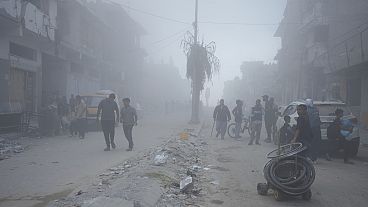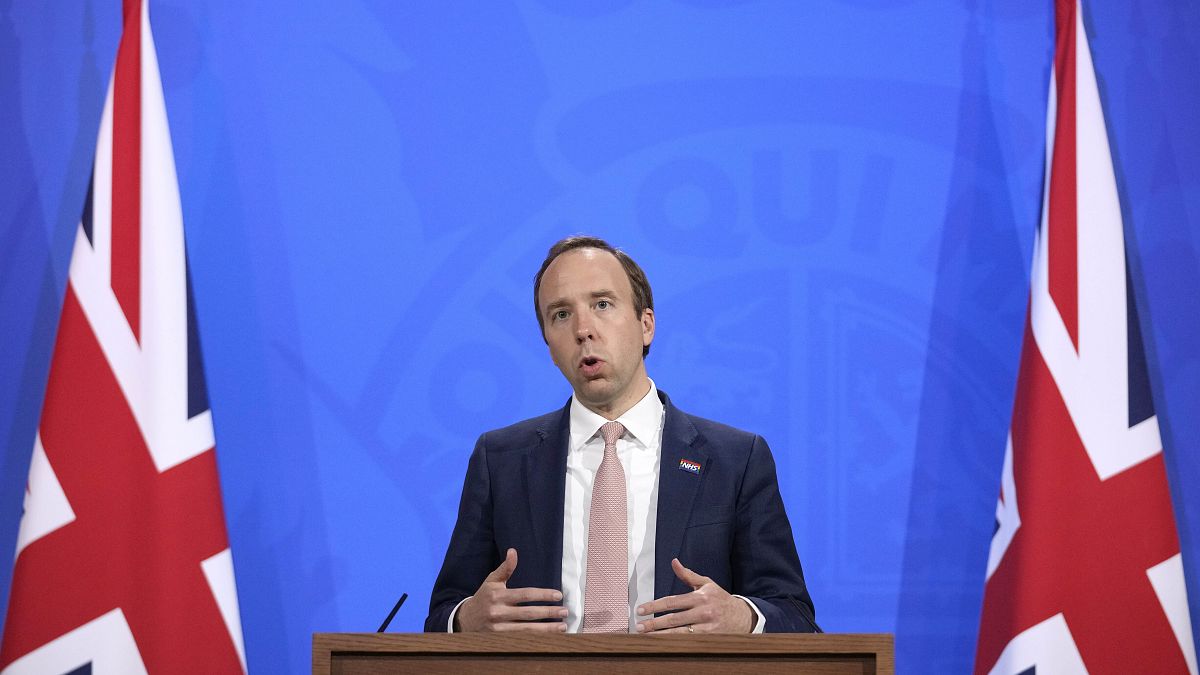The Delta variant, which first emerged in India and is now the dominant variant of COVID-19 in the UK, is about 40% more transmissible.
The COVID-19 Delta variant, which first emerged in India and is now the dominant variant in the UK, is around 40% more transmissible than the Alpha (UK) variant, the UK health secretary said on Sunday.
"That means that it is more difficult, obviously, to to manage this virus with the with the new Delta variant," Matt Hancock told Sky News.
The spread of this more transmissible variant, thought to be responsible for the catastrophic rise in cases, hospitalisations and deaths in India weeks ago, has increased in the United Kingdom.
The health secretary said that one jab of a COVID-19 vaccine appeared to be less effective against the Delta variant, encouraging people to go for their second booster shots.
A recent UK study for instance showed that one dose of the Pfizer-BioNTech and AstraZeneca vaccines were less effective against the Delta variant than the Alpha variant, which first emerged in the UK.
Hancock added that most of the hospitalisations in the country were among people who were unvaccinated.
"The majority of people going into hospital with COVID now are unvaccinated. And that is obviously, that's a challenge for them," Hancock said.
"But it's good news for all of us because it shows that the vaccine protects you from going into hospital."
Cases in the UK have been rising slightly, with some 5,300 new positive cases recorded in 24 hours, according to government figures.
The increase in cases and more transmissible variant could mean the delay of when the country fully relaxes coronavirus restrictions.
"Ultimately, it does make the calculation more difficult for the 21st of June, but it doesn't change our strategy, which is we all need to go and get vaccinated," Hancock said.
Many countries have restricted travel amid fears that the Delta variant will spread further.
It has been identified in 62 countries globally, according to the World Health Organization's latest epidemiological update.
In France, 31 cases of the Delta variant in southwestern Landes region are being closely traced by authorities who said on Friday that there were likely more cases as not all COVID-19 cases are sequenced.












